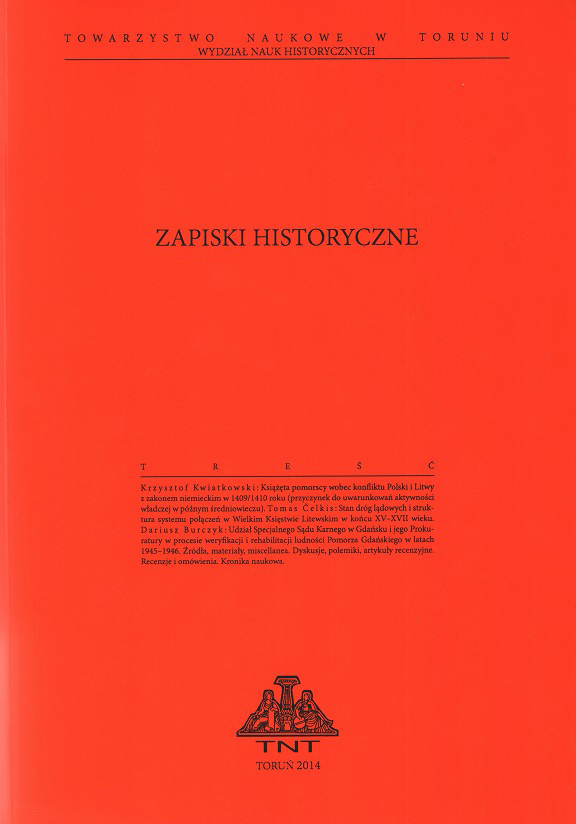Aktywność polityczna mieszczaństwa Wielkiego Księstwa Litewskiego w latach 1789–1792
Political Activity of the Bourgeoisie in the Grand Duchy of Lithuania in 1789–1792
Author(s): Liudas GlemžaSubject(s): Cultural history, Political history, 18th Century
Published by: Towarzystwo Naukowe w Toruniu
Keywords: Polish-Lithuanian Commonwealth; Grand Duchy of Lithuania; towns; bourgeoisie; urban administration; self-government; political reforms; Great Sejm; eighteenth century
Summary/Abstract: The reforms in the second half of the eighteenth century affected the cities and towns of the Kingdom of Poland and the Grand Duchy of Lithuania in various ways. After the reform of 1776, the majority of small towns in the Grand Duchy were deprived of the Magdeburg Law, while they retained the right to acquire landed estates. Apart from private towns, only 11 towns managed by territorial administrators – starosts – and belonging to the royal estates retained their privileged status. During the sessions of the Great Sejm (1788–1792), the discussions on the situation of Lithuanian towns were resumed. Representatives of towns that retained the Magdeburg Law, those which had lost it, and those striving for new rights and liberties were invited by the municipal authorities of the Old Town of Warsaw in order to submit their demands in the Sejm together with all the towns. The new town laws of 1791 laid the foundations for modern urban administration and prepared the grounds for burghers to fight for their rights and liberties, which was influenced by the municipal self-government institutions established under these laws. The question of the number of small Lithuanian towns which took advantage of this opportunity during one year (1791/1792) has already been considered in Lithuanian and Polish historiography. Until now, however, historians have usually limited themselves to indicating the number of issued self-government privileges (74), but this figure does not provide a full picture of the political activity of the Lithuanian bourgeoisie. The article identifies 130 small Lithuanian towns (excluding 11 towns which retained the Magdeburg Law) which actively participated in the political movement of the bourgeoisie in the Polish-Lithuanian Commonwealth, and analyses the composition of this group of urban settlements.
Journal: Zapiski Historyczne
- Issue Year: 86/2021
- Issue No: 1
- Page Range: 57-84
- Page Count: 28
- Language: Polish

